History
At Stoneyholme Community Primary School, our vision is to ignite curiosity and nurture a lasting interest for history in every child, empowering them to explore the past with open minds, think critically about historical events and perspectives, and appreciate the diverse experiences that shape our world today.
At Stoneyholme Community Primary School we think like historians by…
- being curious about what has happened in the past
- understanding chronology and I have a concept of time
- using a range of historical sources to find out more about the past
- having the confidence to question bias
- developing our understanding of local, national and international history
- making links between historical events of the past
- understanding how learning from events in the past can help us prepare for the future
Road Map
Curriculum Overview
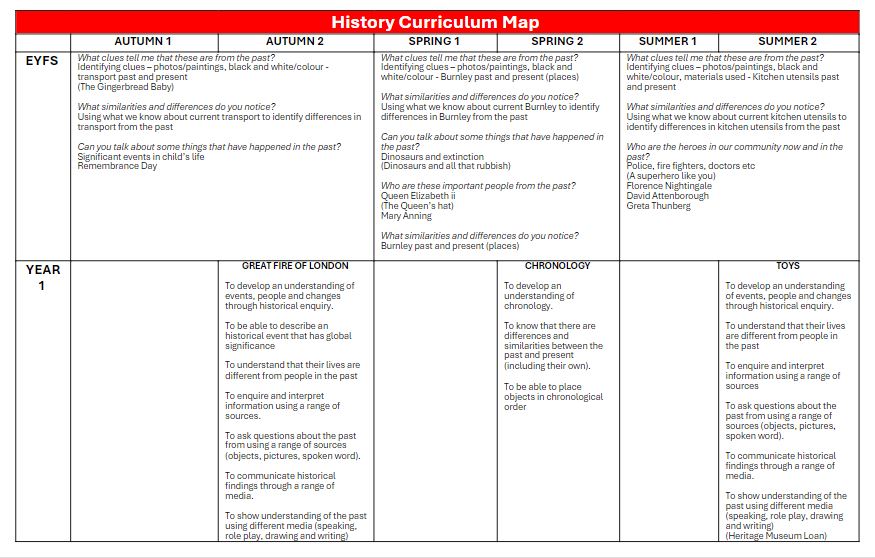
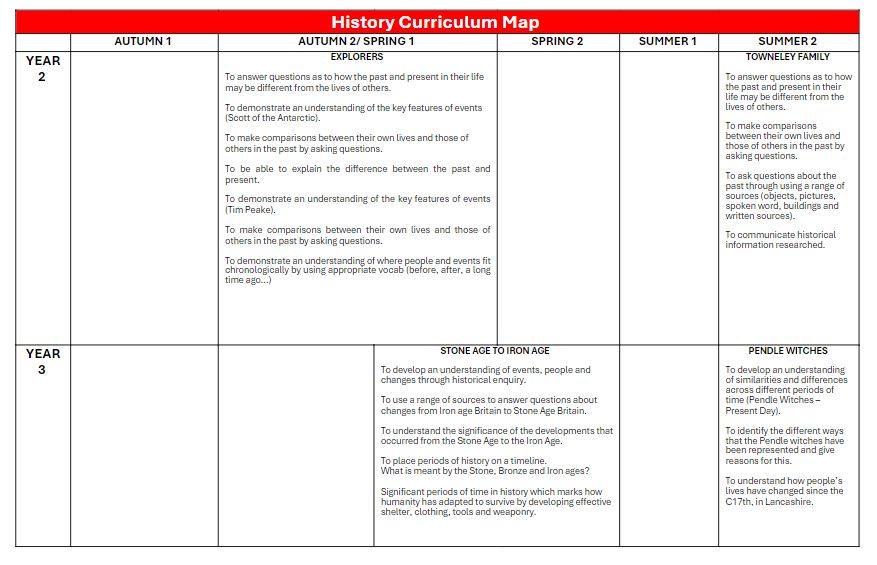
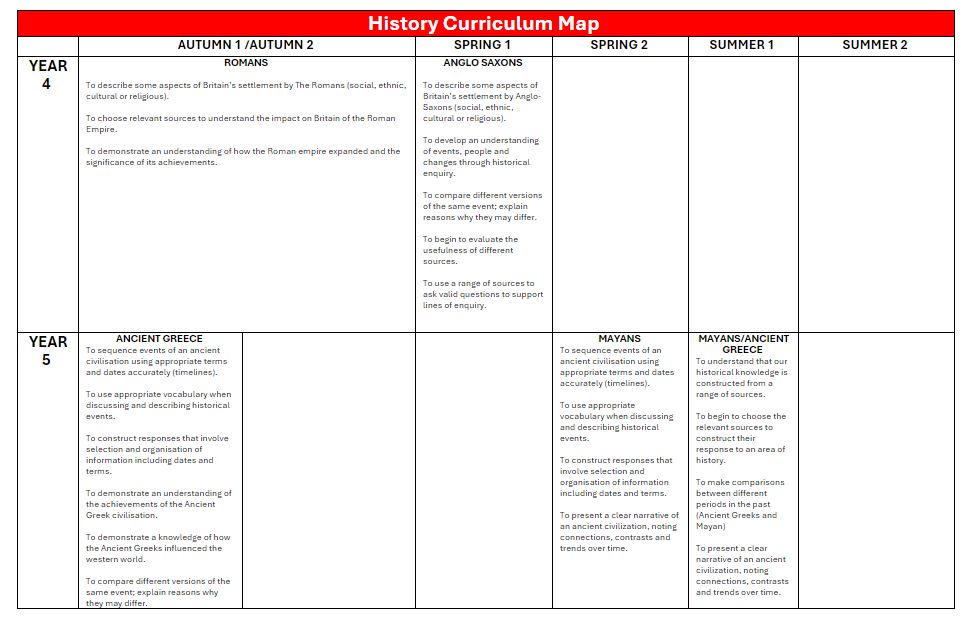

Together, substantive and disciplinary concepts help students not only know the content but also understand how knowledge is gained. At Stoneyholme Community Primary School, students don’t just learn about events (substantive) but also how historians interpret evidence and construct narratives (disciplinary).
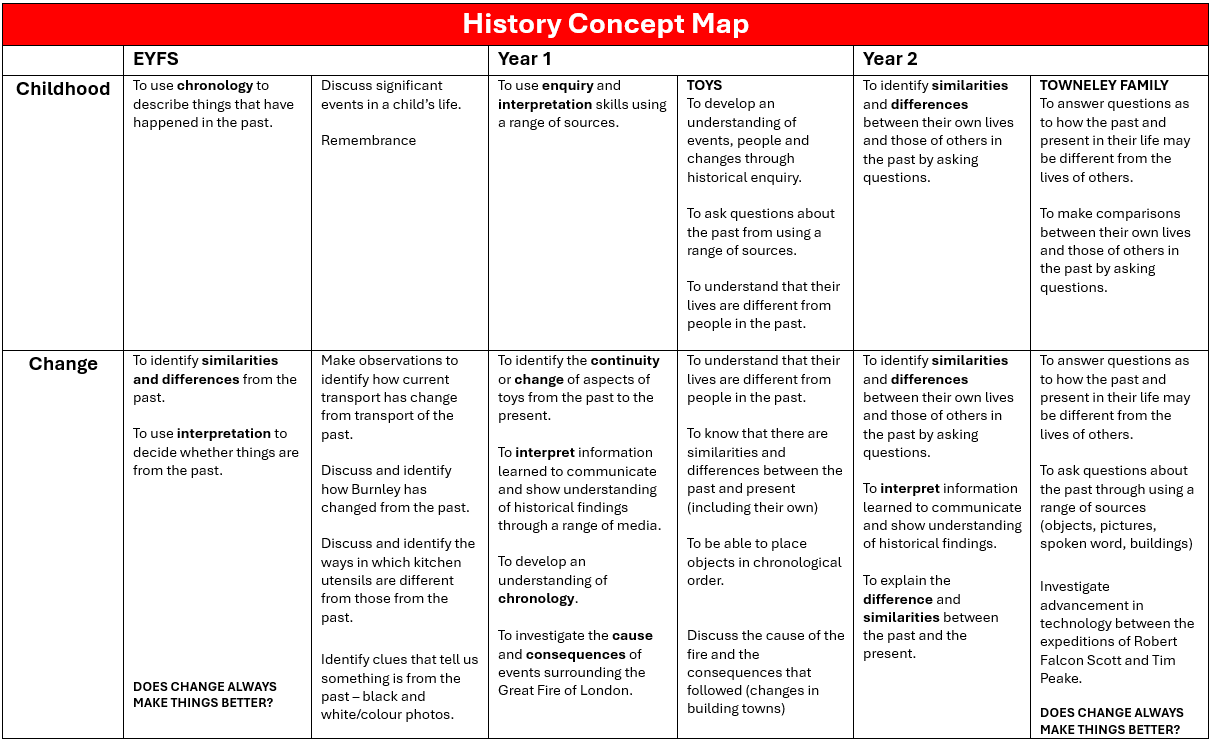
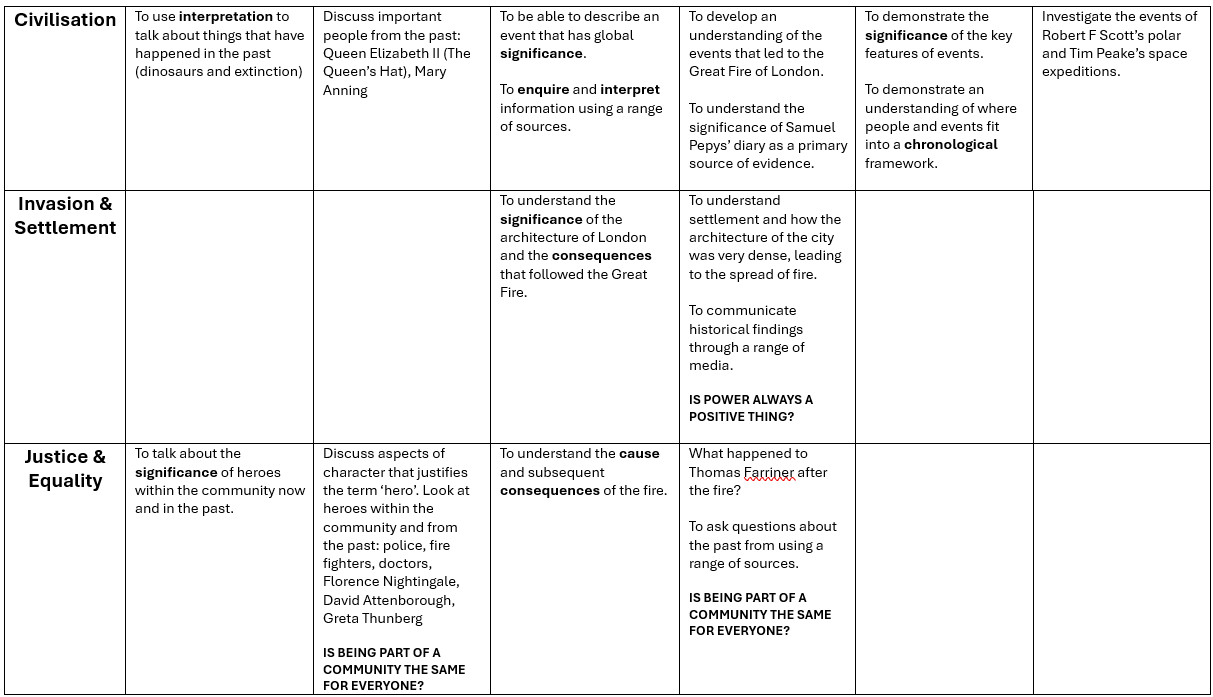
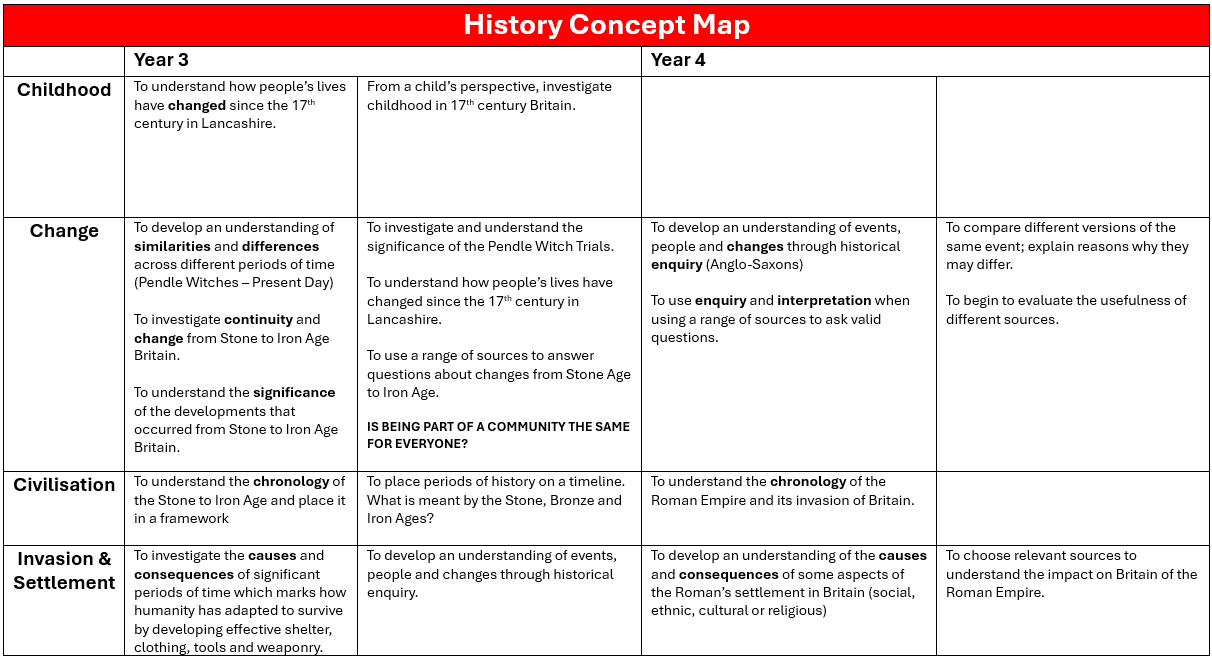



Situational Report
history situational report.pdf
Policy
Vision
At Stoneyholme Community Primary School, our vision is to ignite curiosity and nurture a lasting interest for history in every child, empowering them to explore the past with open minds, think critically about historical events and perspectives, and appreciate the diverse experiences that shape our world today. Through engaging, enquiry-based learning, we aim to build a foundation of historical knowledge and empathy, helping young learners see themselves as active participants in an ever-evolving world.
Intent
Our History Curriculum is designed to focus on developing children’s understanding of the past and their skills to interpret and question historical information. We strive for children to progress through their historical journey by learning more and remembering more. In school, we focus not only on key historical knowledge, but also how we prepare children to investigate history through skills-based enquiry by ‘thinking like a historian’.
The aims of teaching History at our school are:
- For children to build an understanding of chronology, sequence of events, and where people and events fit within broader timelines. This includes grasping concepts such as past, present and future
- To equip children with a strong foundational knowledge of significant people, places, and events, both locally and globally. This includes familiarising them with key figures, important historical events, and cultural movements
- To inspire curiosity about the past, encouraging students to ask questions, seek answers, and explore historical sources. This fosters critical thinking and a sense of wonder about different cultures and times
- For students to gather information from various sources, such as artifacts, stories, written records, and images, and evaluate their reliability. This introduces them to the concept of evidence and helps them distinguish between primary and secondary sources
- To guide children in recognising how and why certain events happened and their impacts on later events or developments. This includes helping students understand how history shapes the present
- To encourage students to consider the perspectives of people from different times and backgrounds. This helps them understand diversity in history and builds empathy by connecting human experiences across time
- To develop children's ability to compare, contrast, and connect historical events and figures. This involves using historical terms and concepts to communicate their ideas and findings effectively
Implementation
Our History Curriculum is designed to develop historical knowledge for our children, but also to revisit key historical concepts and skills which have been carefully sequenced and planned to deepen understanding and encourage application and mastery of them.
We do this by:
- The teaching of history is planned for in half-termly blocks across both key stages
- Integrating primary and secondary sources of evidence through the Lancashire Museum Loans Service, making tangible connections with the past
- Incorporating technology by using iPads, promoting research and enquiry skills
- Experiencing a wide range of opportunities outside the classroom including trips, visitors and carefully planned activities within our vast school grounds
- The use of storytelling to make characters and events relatable to learning
- The use of fiction that brings history to life and non-fiction material to present factual information
- Acting out historical scenarios or taking on the role of historical figures – including the use of technology through green-screening
- Using visual representations such as timelines, digital mapping, photographs, posters or charts
- Fostering curiosity by asking pupils to ask questions about the past
- Encouraging children to think like a historian by employing disciplinary approaches to learning: chronology, continuity and change, cause and consequence, similarity and difference, significance and historical interpretation
- Considering substantive concepts which are concerned with the subject matter of history such as childhood, change, civilisation, invasion and settlement and justice and equality
- Provide materials at varying levels of complexity to cater for the ability range of the class
- Explicitly teaching subject specific/technical vocabulary
- Pre-teaching
- The use of ‘talk partners’ to encourage collaborative learning and discussion
By following these steps, we aim for our History Curriculum to be both an informative and engaging subject, laying a strong foundation for further historical studies and helping students develop an early appreciation for the past.
Impact
Measuring the impact of History at our school is essential for understanding how well children are gaining historical knowledge, developing critical thinking skills and demonstrating progression.
This is done by:
- Key questioning on previous knowledge and current
- Quizzes at the end of units and these are repeated throughout the year
- Pupil discussions within class about their learning
- Pupil interviews about their learning with subject leader
- Monitoring of books, knowledge organisers, long term plans and the website
- Assessment against National Curriculum, weekly linked to key questions on knowledge organisers and an overall judgement at the end of a unit of work
- Analysis of data at the end of an academic year
Pupil Voice
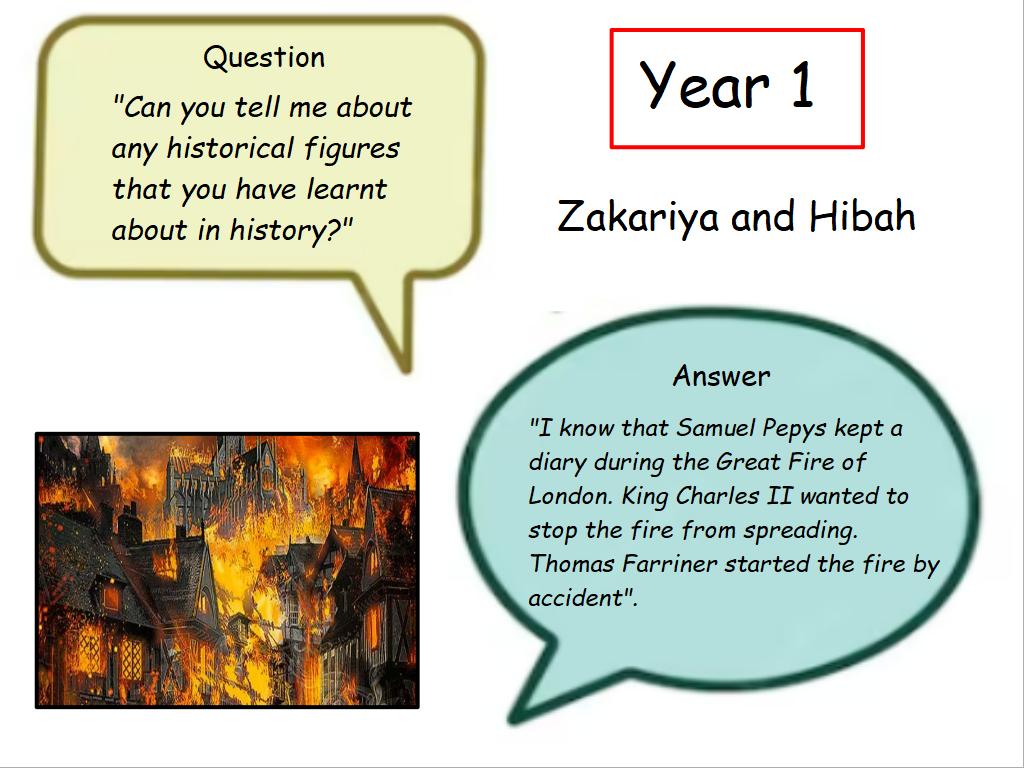
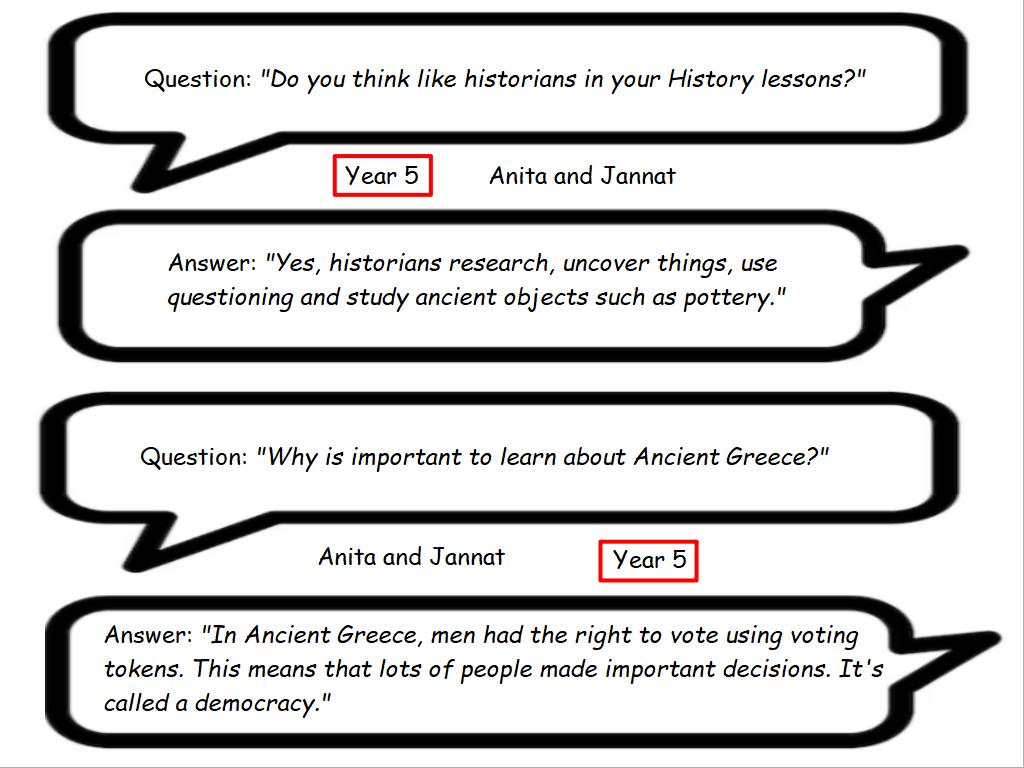
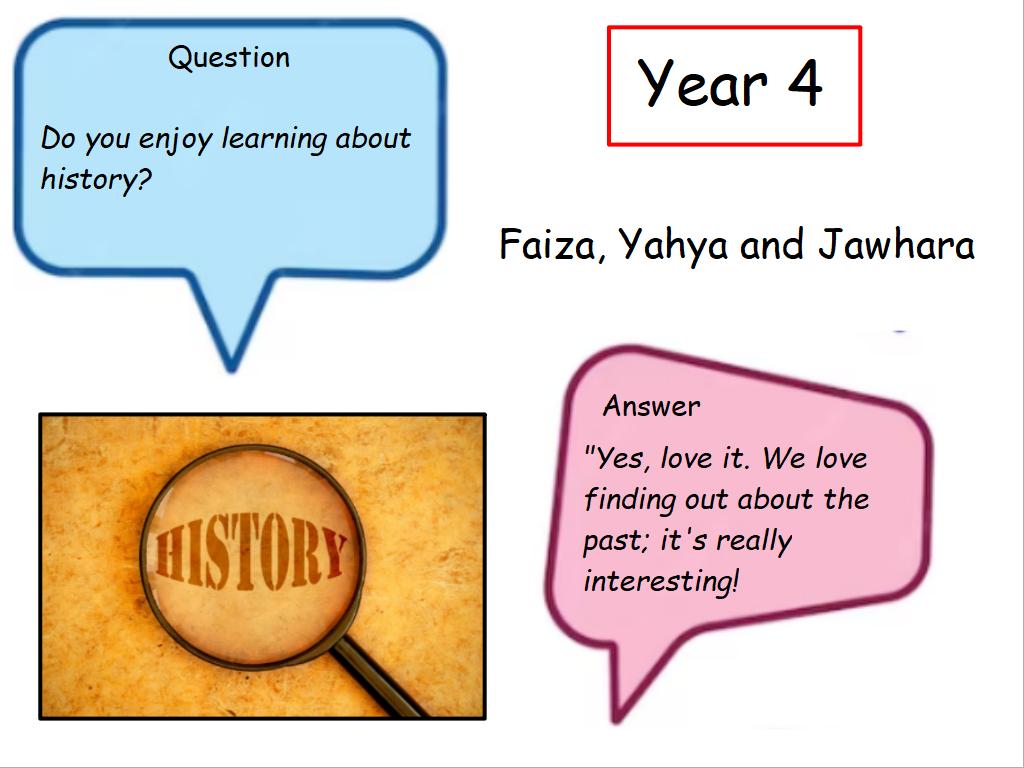
Showcase
EYFS
What can you tell me about the past? The children in EYFS have been thinking about things that have happened in the past.
Year 1
In Year 1, the children have been learning about the Great Fire of London. They have investigated how the fire started and how it spread so quickly.
Year 2
In Year 2, the children have been learning about explorers and Sir Robert Falcon Scott's expedition to the South Pole.
Year 4
In Year 4, the children have been learning about the ancient Roman civilisation and their invasion of Britain.
/i/video/Year_6/IMG_1391.mov
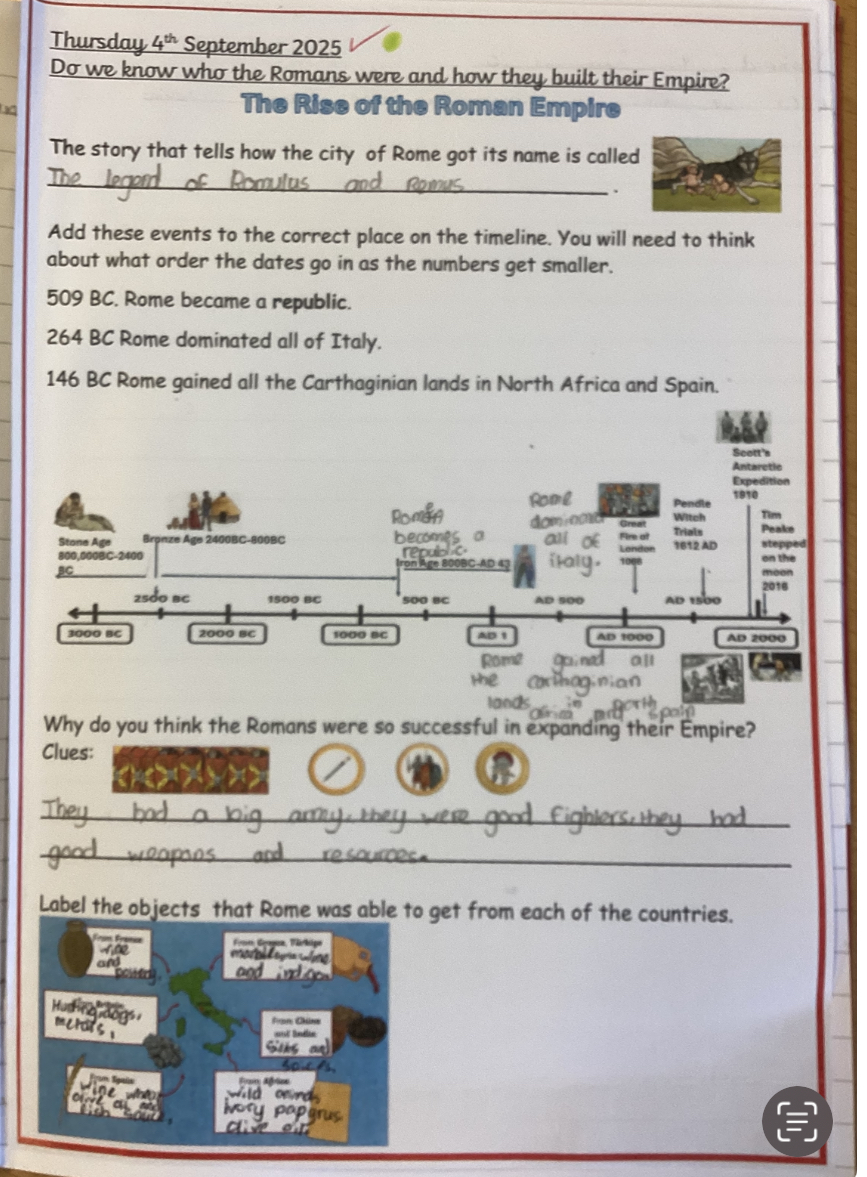
/i/video/History__Nick_/IMG_1390.mov
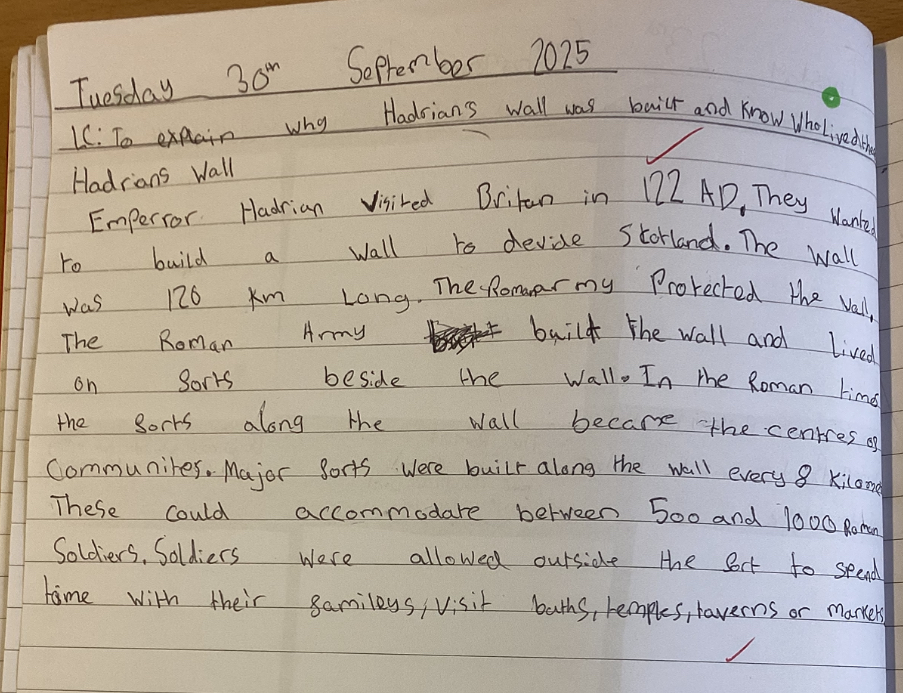
/i/video/Year_6/IMG_1389.mov
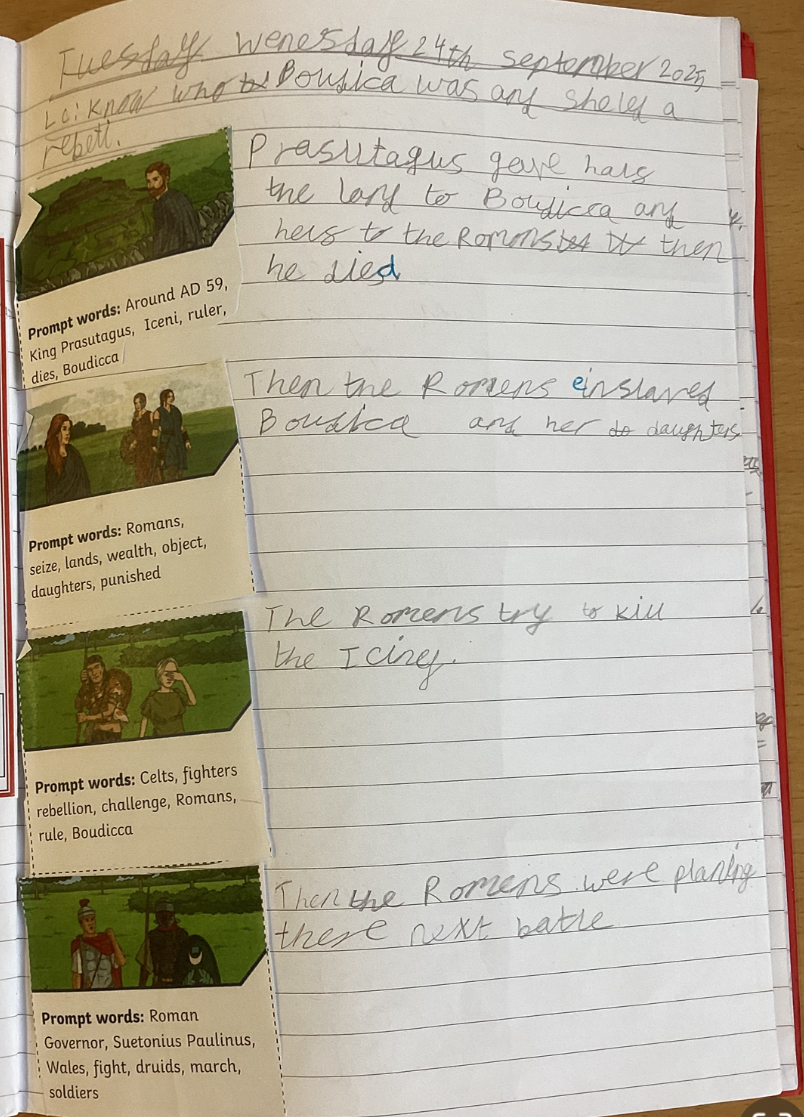
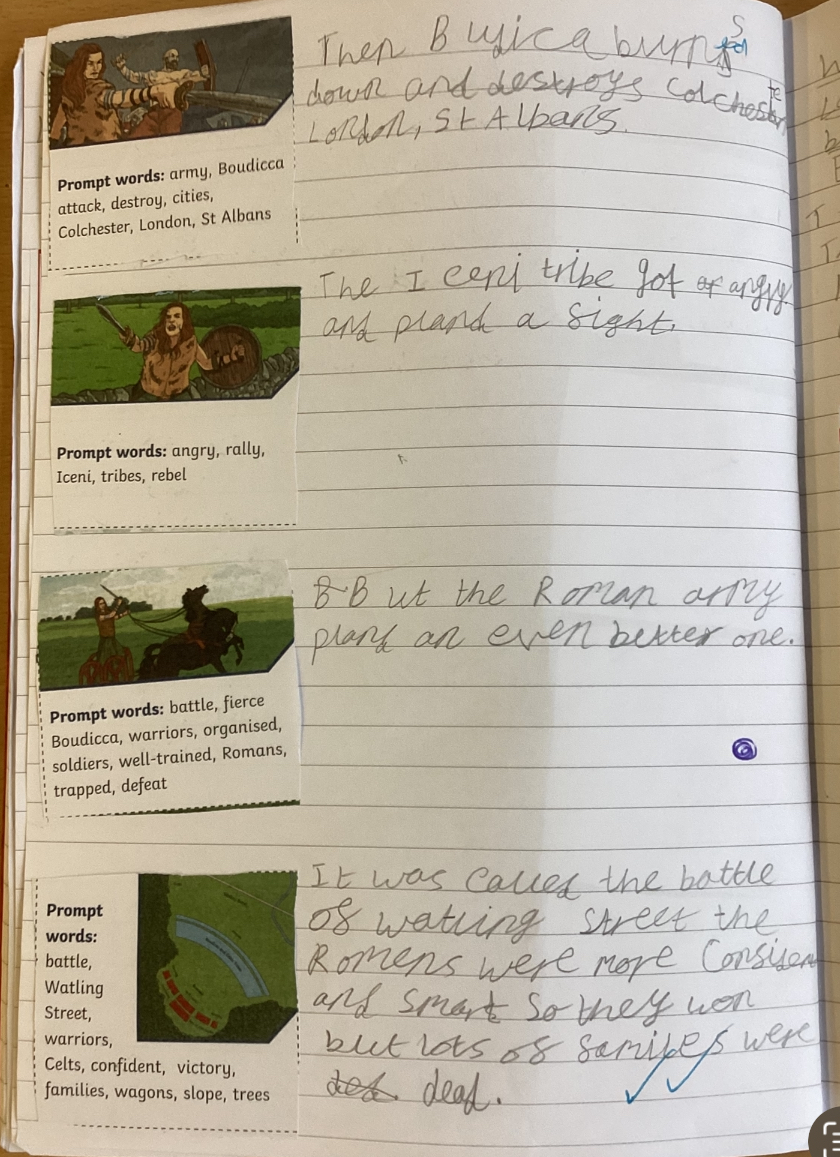
Year 5
Year 5 children have been learning about how the civilisation of ancient Greece impacted the modern world.
/i/video/History__Nick_/My_Movie_8.mp4
Year 6
The children in Year 6 have begun learning about the Industrial Revolution and the Victorians and how this period of history shaped Britain.
The children in Year 6 have started the topic by looking how the Victorians fit into a chronological framework of other British monarchs around this time.
/i/video/Year_6/IMG_0139.mov
Year 6 have been on a trip to Queen Street Mill, the last surviving steam powered cotton mill in the world! Here they learned about what life was like as a cotton mill worker and even had a go at weaving themselves.
/i/video/Year_6/Queen_Street_Mill-360p30.mov
Larien, Faiza, Ayesha and Marwah have used iMovie to create a short movie about what life was like as a Victorian mill worker. Have a look!
/i/video/Year_6/My_Movie.mp4

